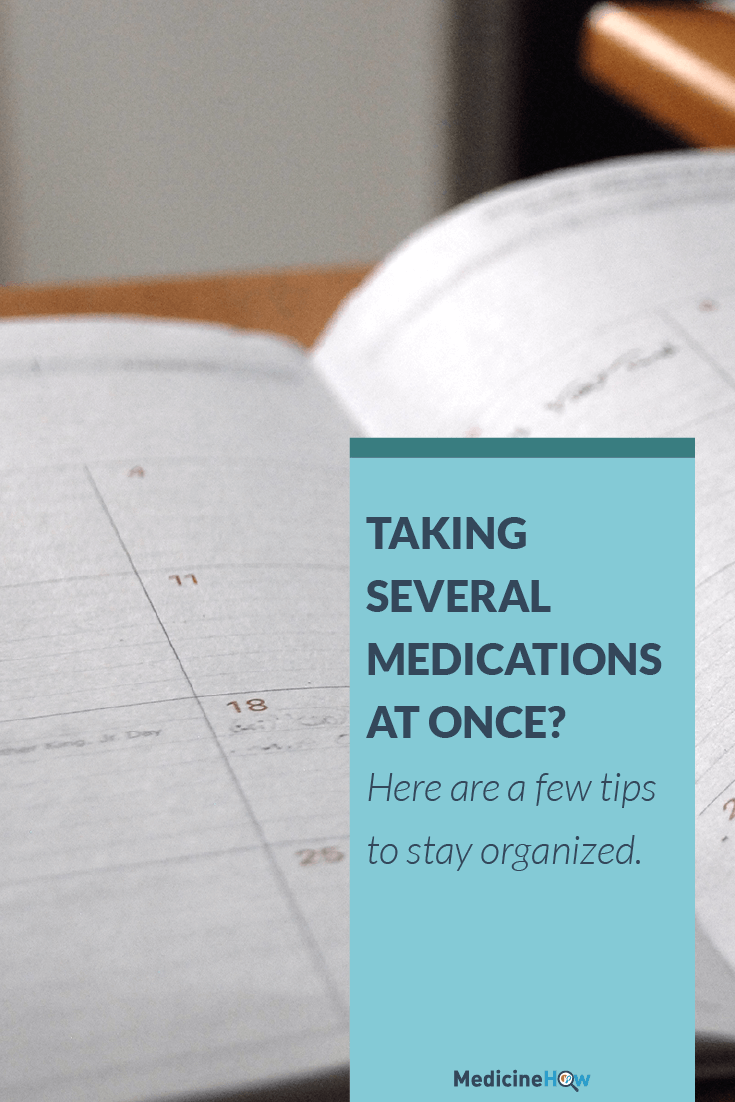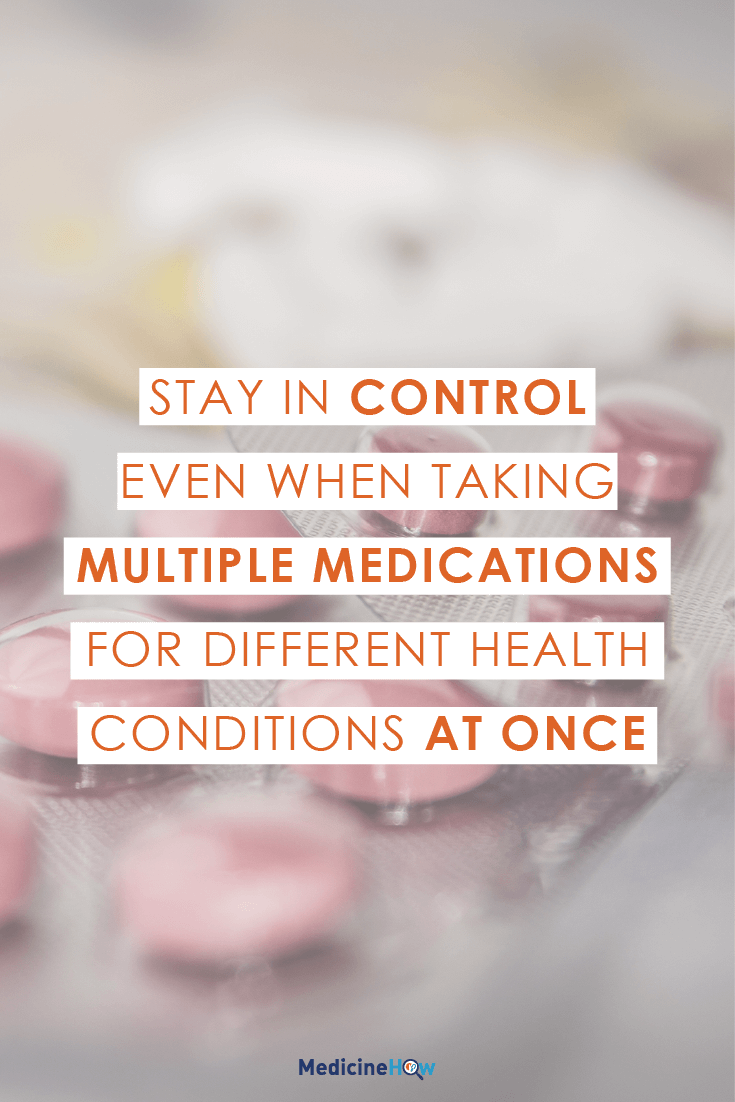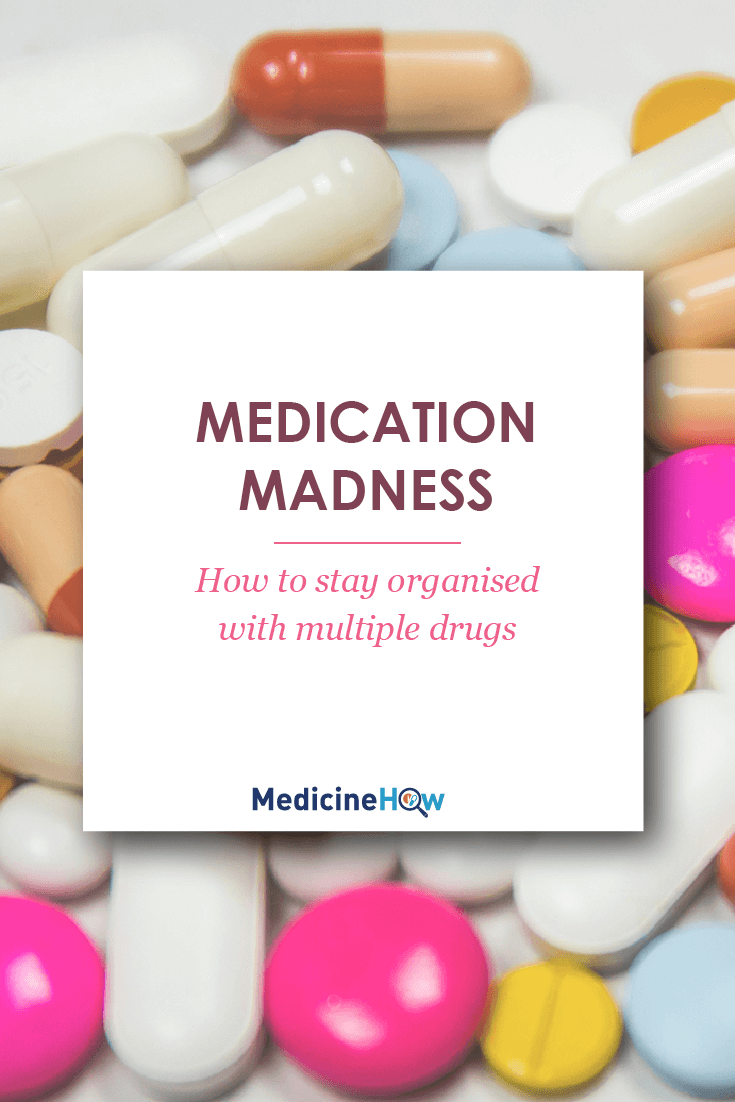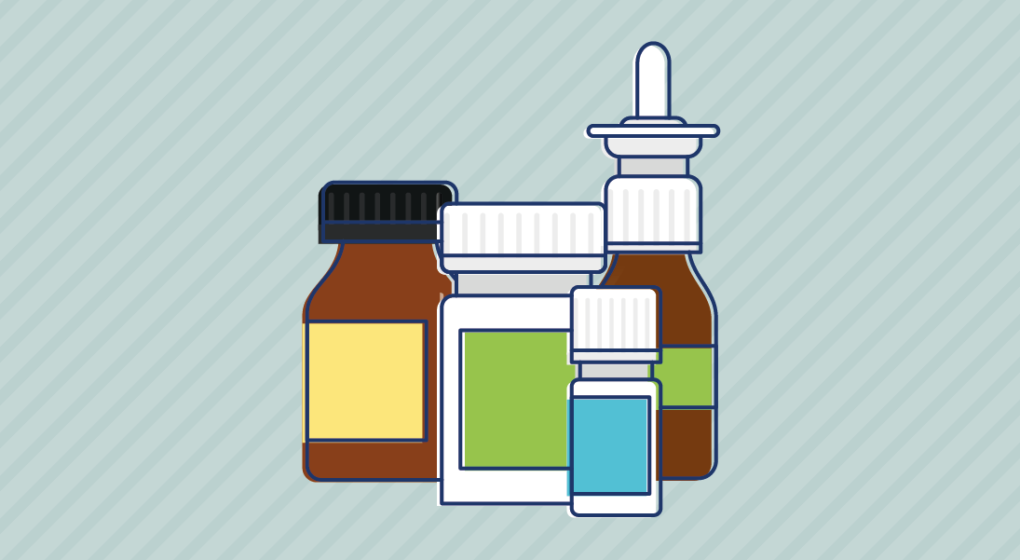
Multiple medications is a common problem in today’s society – something I’ve written about before. Often we don’t even know exactly why we need each one – it gets to a point where we just trust the doctor to make the decisions and try to remember to take each one at the right time.
But sometimes it is exactly this that turns out to be the hardest thing.
If you’ve been prescribed six (or more!) different medications – some to be taken twice a day, some only in the morning and others just before bedtime – it becomes a right mess to remember to take each one correctly.
Today, we’re going to have a look at a good solution to this problem. Just how to deal with the madness that comes with needing to take multiple medications.
Organising Multiple Medications
In circumstances like these, the best thing we can do is to work out an organised way for you to take your medications. The way that fits your routine best and helps you to get the most out of them.
It’s not something that is the same for everyone, because everyone goes about daily life differently and needs something different from their medications. There are, however, some good tips that most people can apply to their individual circumstances.
1. Record details about your health and medications
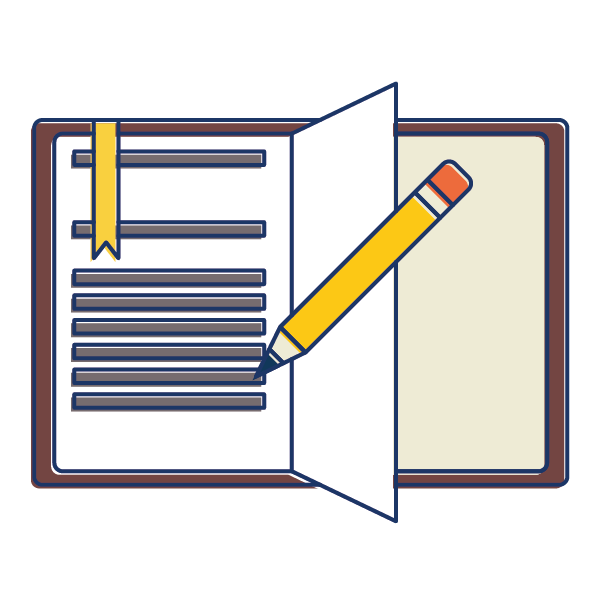 The first and most important thing I’d like you to get out of reading this is to understand what you can of your health and the medications you take. Pay attention to your body, ask questions to your doctor/other health professionals and actually listen to the answers.
The first and most important thing I’d like you to get out of reading this is to understand what you can of your health and the medications you take. Pay attention to your body, ask questions to your doctor/other health professionals and actually listen to the answers.
This is absolutely essential to feeling – and being – in control of your health.
As we get older, our bodies naturally start to slow down. Problems will occur and sometimes it will be hard to keep track of. This is where it can really help to write things down.
By this, I don’t mean keeping your doctor’s records all together in a filing cupboard. While you should do that too, it is a great idea for you to record things about your health on your own. That way, you’re forced to make sense of what your doctor has told you and you’ll likely find that you’ll understand it in a clearer way.
Here are some of the things you should write down:
- Symptoms you experience – especially anything new or changing severity
- Medical conditions you have – ongoing conditions and those that happen infrequently
- Medications you take – when and how you take them, as well as any recent changes
- Vitamins and Supplements – record just like medications
- Major diet changes – drugs aren’t the only things that affect our bodies, changes in diet can affect your health profoundly too
Important Note: It is very helpful to write down dates whenever you can, as you can start to get a clear picture of what is happening. For example, if you begin a drug in May, then notice a particular symptom stops or starts a few weeks later in June, we may be able to piece together the puzzle and work out that that drug may have an effect on that symptom.
2. Label everything clearly in a way you understand
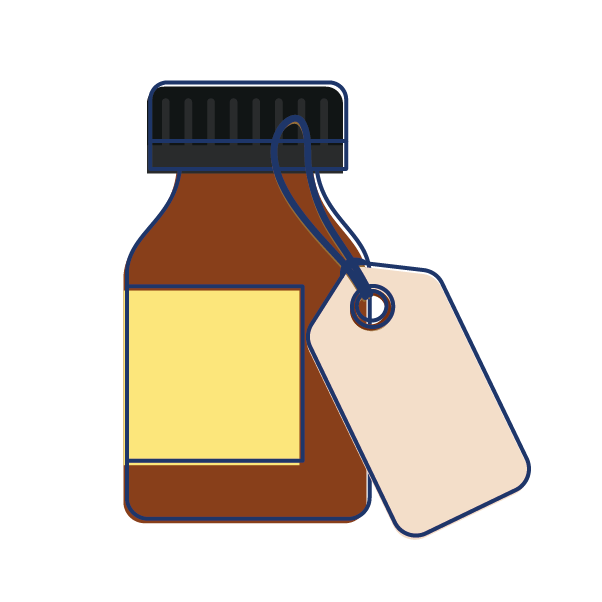 The first thing to do is to make sure you can recognise each medication for what it is. This is particularly true if you often go to
The first thing to do is to make sure you can recognise each medication for what it is. This is particularly true if you often go to
different pharmacies that might give you different brand names of the same drug – ones that don’t look alike at all.
A good solution to this is to always go to the same pharmacy, as they will usually stock the same brand. This is also helpful as they will be able to regularly help you check up on your medications.
Otherwise, you can work out a way to help you recognise them easily. Perhaps you could colour code them with different stickers. Or keep the boxes in different coloured containers.
It is a good idea to keep your medications together in one place – something most people already do. Organising many medications well, however goes beyond this.
Think about how you take your medications. Put those that you take in the morning together in one section. Same with those at night. If you take some multiple times a day, keep these in another section.
These are, of course, just a few ideas of how you could better organise your medications if you are on the verge of getting confused and mixing them up. The best way for you will depend on your individual circumstances: the medications, how you take them and how well you can keep organised.
3. Develop a medication routine
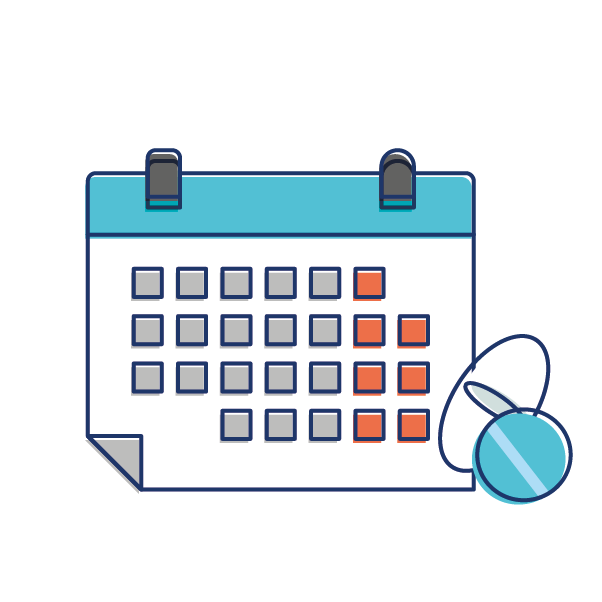 When taking your medication becomes a natural part of your daily routine, it becomes less confusing and a lot easier to manage.
When taking your medication becomes a natural part of your daily routine, it becomes less confusing and a lot easier to manage.
So how can we do it?
You’ve probably tried just trying to remember to take the right medications at the right time every day – with varied success. Some days it goes perfectly, some days you simply forget.
How can we make taking medications become a part of our daily routine?
In my opinion, the best way is to connect the medication to a certain activity.
Think about the non-medication-related things you do every day. A cup of tea in the morning? Brushing your teeth? The dishes?
If you can associate your daily tasks with taking the medications at that time of the day, you’re on your way to becoming more organised.
A simple note next to your toothbrush reminding you to take your nighttime medication can be all it takes.
4. Consider pre-packing medications
Pre-packing medications is a great idea, especially if you need multiple medications at different times throughout the day.
What this means is that someone – this can be you, a friend, or a pharmacist – gets all of your medications out for a set time period, usually about a week and packs them into a convenient way for you to take for the next week.
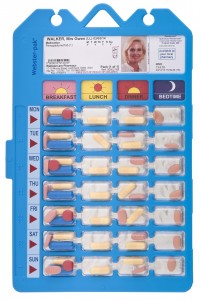
Source: WebsterCare
There are different containers that you can buy that are designed to help sort out multiple medications.
Some, like the one pictured here that is packed by a pharmacist, has four medication times throughout the day for an entire week.
You can then simply keep it somewhere you see often (like this one that hangs on the fridge) and it’s easy to see if you’ve missed any doses.
Note: Pre-packing medication is a great concept – but only if it is done correctly. There have been cases of medications that should be taken only once a week that were accidentally packed everyday, which led to disastrous consequences. It is helpful if you know what should be inside each section as you take it, as a double (or triple) check as you go.
How to Deal with Multiple Medication Madness
Madness, it truly is. That I understand. But we have to make the best out of a difficult situation.
The most important thing is try to understand why you take each medication, and be able to recognise it from the others where you can.
Make taking your medications a part of your daily routine and start making it a habit to consider how your daily health is going.
Taking multiple medications can become very confusing very quickly, but with a little bit of effort you can keep on top of it.
Do you have any tips of how to stay on top of your medication regime? Let me know in the comments below.
Pin It!
